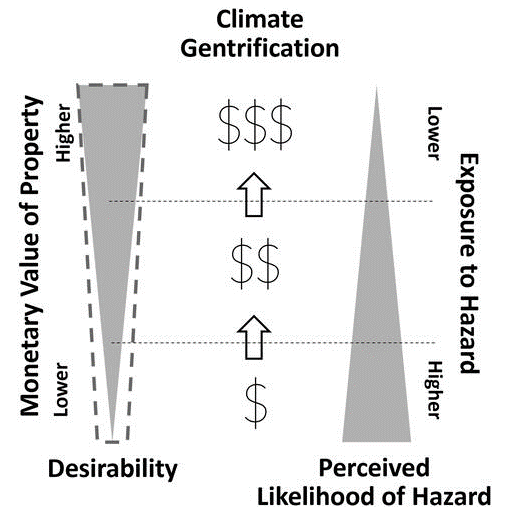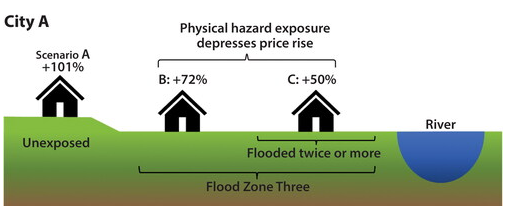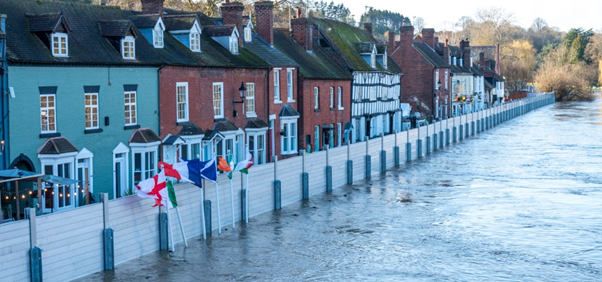A new paper by Josh Thompson, a PhD student at Loughborough University, discusses the concept of climate gentrification and how physical climate hazards such as flooding and wildfires can affect property prices.
The article, published in Annals of the American Association of Geographers, demonstrates how climate gentrification has suppressed property price growth by up to 50%, between 2005 to 2018, in one flood-prone UK city.
Climate gentrification is a process by which climate change could make some properties more or less valuable depending on their physical exposure and resilience to hazards such as flooding and wildfires.
The paper looks at some of the key drivers of climate gentrification and raises questions about the risks to the insurance and mortgage industries, bank portfolios, and financial systems.

Author Josh of Loughborough Geography said: “These findings are important for people's everyday lives because real estate and the value of property is often an individual's most significant financial asset.
“Changes in property values due to climate hazards can affect homeowners' financial wellbeing, influence decisions on where to live, and impact the affordability and accessibility of housing in certain areas. Whilst not covered directly by our research, evidence suggests that similar effects may be occurring in rental markets too
“Additionally, the consequences of climate gentrification can extend to the insurance and mortgage industries, bank portfolios, and the wider financial system.”
The paper also discusses key ethical concerns related to climate gentrification research and suggests ways forward.
“Such price signals have potential ramifications for the long-term stability of real estate markets and raise policy implications for private and public sectors,” said Josh.
“Climate gentrification is a rapidly developing research area and has important implications for multiple stakeholders and long-term stability of real estate markets.
“Through this paper, we are providing a new working definition for this growing topic and are raising key ethical concerns relating to climate gentrification research.”

The paper can be found here: https://www.tandfonline.com/doi/full/10.1080/24694452.2022.2156318
ENDS
